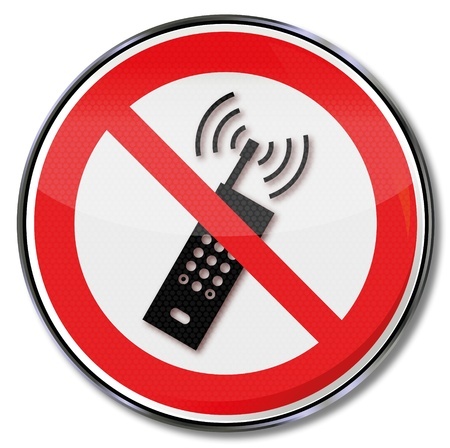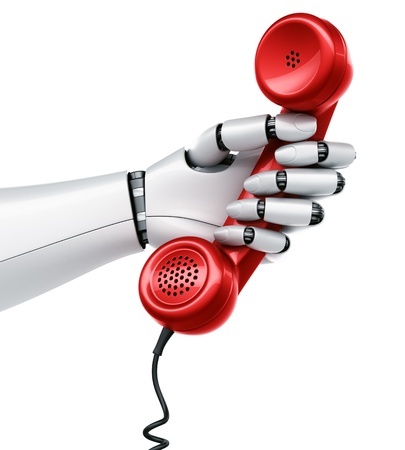Are You Robodialing? The TCPA and FCC Scoop You Need to Know
 In 1991, when Congress began regulating autodialers via the Telephone Consumer Protection Act, our phones and our relationships with them were vastly different from what that equipment and those relationships look like today. At that time, Congress was regulating a world without text messages and ubiquitous cell phones and a world where autodialers were infuriating consumers nationwide for their ability to generate and dial telephone numbers indiscriminately without regard for who was on the receiving end of the call.
In 1991, when Congress began regulating autodialers via the Telephone Consumer Protection Act, our phones and our relationships with them were vastly different from what that equipment and those relationships look like today. At that time, Congress was regulating a world without text messages and ubiquitous cell phones and a world where autodialers were infuriating consumers nationwide for their ability to generate and dial telephone numbers indiscriminately without regard for who was on the receiving end of the call.
In the intervening years, Congress has made modest TCPA amendments to address unsolicited faxes and nefarious manipulation of caller ID information, but it has otherwise failed to adjust the law to reflect the way we communicate today. The FCC has tried harder than Congress to update its TCPA rules, but it too has failed in this regard. The result is a set of obsolete standards whose significance vastly outpaces their sense due to the TCPA’s private right of action and rigid statutory damages calculation. Companies hoping the FCC would pivot toward sanity in its recent announcement of TCPA guidance are surely disappointed today.
The TCPA has always defined a regulated “autodialer” as equipment with the capacity to store or produce telephone numbers to be called using a random or sequential number generator and to dial such numbers. The FCC’s TCPA rules retain that formal definition, but the FCC has explained that predictive dialers and other equipment enhancing dialing efficiency are also regulated as autodialers because of their capacity to dial numbers without human intervention. The FCC has repeatedly confirmed that the focus of the “autodialer” standard is on the equipment’s capacity, not its actual use.
A number of courts have tried to make this “capacity” standard more concrete by limiting it to the equipment’s present capacity, that is, what the equipment was capable of doing when the calls at issue were replaced, without considering what the equipment could be reconfigured to do at some future time. These courts explained that a focus on present capacity was necessary to ensure that every person’s smartphone would not be regulated as an autodialer based on what it could be reprogrammed to do.
 The FCC received a number of petitions seeking more formal, universal guidance on the TCPA’s “autodialer” standard. We are still waiting for the FCC to publish the guidance it has approved, but according to the FCC’s June 18, open meeting, that guidance will not make this issue any clearer. According to the FCC’s preview, that guidance will affirm that the TCPA’s “autodialer” standard focuses on the equipment’s capacity, ensuring that “robocallers cannot skirt consumer consent requirements through changes in calling technology design or by calling from a list of numbers.” If this is an accurate summary of the FCC’s guidance, it will do absolutely nothing to resolve the most pressing concerns on this issue. It will not address whether “click-to-dial” technology, which involves some human intervention but may have the capacity to operate without it, is regulated as an “autodialer.” It will not address whether the definition’s “capacity” element is limited to present capacity or also includes possible future capacity. The surge in private TCPA litigation makes these ambiguities treacherous.
The FCC received a number of petitions seeking more formal, universal guidance on the TCPA’s “autodialer” standard. We are still waiting for the FCC to publish the guidance it has approved, but according to the FCC’s June 18, open meeting, that guidance will not make this issue any clearer. According to the FCC’s preview, that guidance will affirm that the TCPA’s “autodialer” standard focuses on the equipment’s capacity, ensuring that “robocallers cannot skirt consumer consent requirements through changes in calling technology design or by calling from a list of numbers.” If this is an accurate summary of the FCC’s guidance, it will do absolutely nothing to resolve the most pressing concerns on this issue. It will not address whether “click-to-dial” technology, which involves some human intervention but may have the capacity to operate without it, is regulated as an “autodialer.” It will not address whether the definition’s “capacity” element is limited to present capacity or also includes possible future capacity. The surge in private TCPA litigation makes these ambiguities treacherous.
Although the FCC discussion of its TCPA guidance touts the protections provided to consumers, the autodialer provisions apply equally to business-to-business calling. MCA companies must be aware of the TCPA’s autodialer requirements for B2B calling campaigns. They can be sued for improper calls placed to businesses, as well as errant B2B calls that are answered by individual consumers. The FCC’s TCPA rules establish that callers must have the call recipient’s “prior express written consent” for sales calls placed to cell phones using an autodialer or a prerecorded message. This form of consent requires a signed writing from the call recipient and requires certain “magic words” disclosures that must be provided when the consent is obtained. This consent requirement applies to B2B calls as well as B2C calls, and the existence of an established business relationship between the parties to the call does not provide any relief from this requirement. Non-sales calls to cell phones using an autodialer or a prerecorded message require “prior express consent.” This term is not defined, but the FCC has explained that a call recipient provides valid consent to a creditor by volunteering his or her cell phone number to the creditor, such as on a credit application. There are tricky details in this standard, so MCA companies should proceed with caution in order to establish valid TCPA consent.
Technology makes our lives easier, but it makes our TCPA compliance analysis more complicated. The TCPA should not impede technological developments that do no harm, but the law’s enforcement scheme encourages “professional plaintiffs” and greatly increases the likelihood that a TCPA violation will result in a lawsuit. The FCC is presently fumbling an opportunity to address this. It’s unclear when another such opportunity will arise or what it will take for the FCC to decide to align its TCPA rules with the real world.
Last modified: April 19, 2019






























